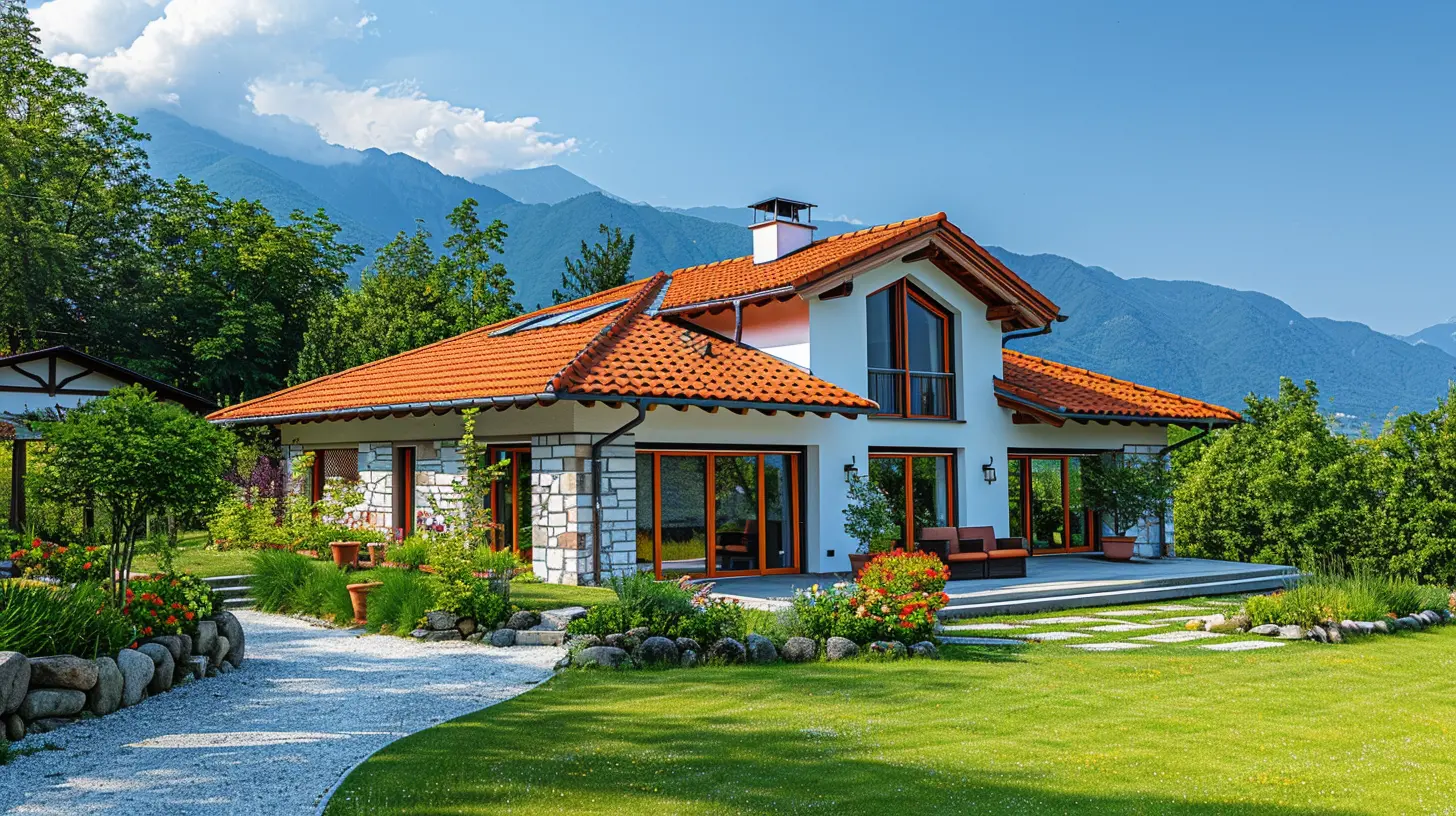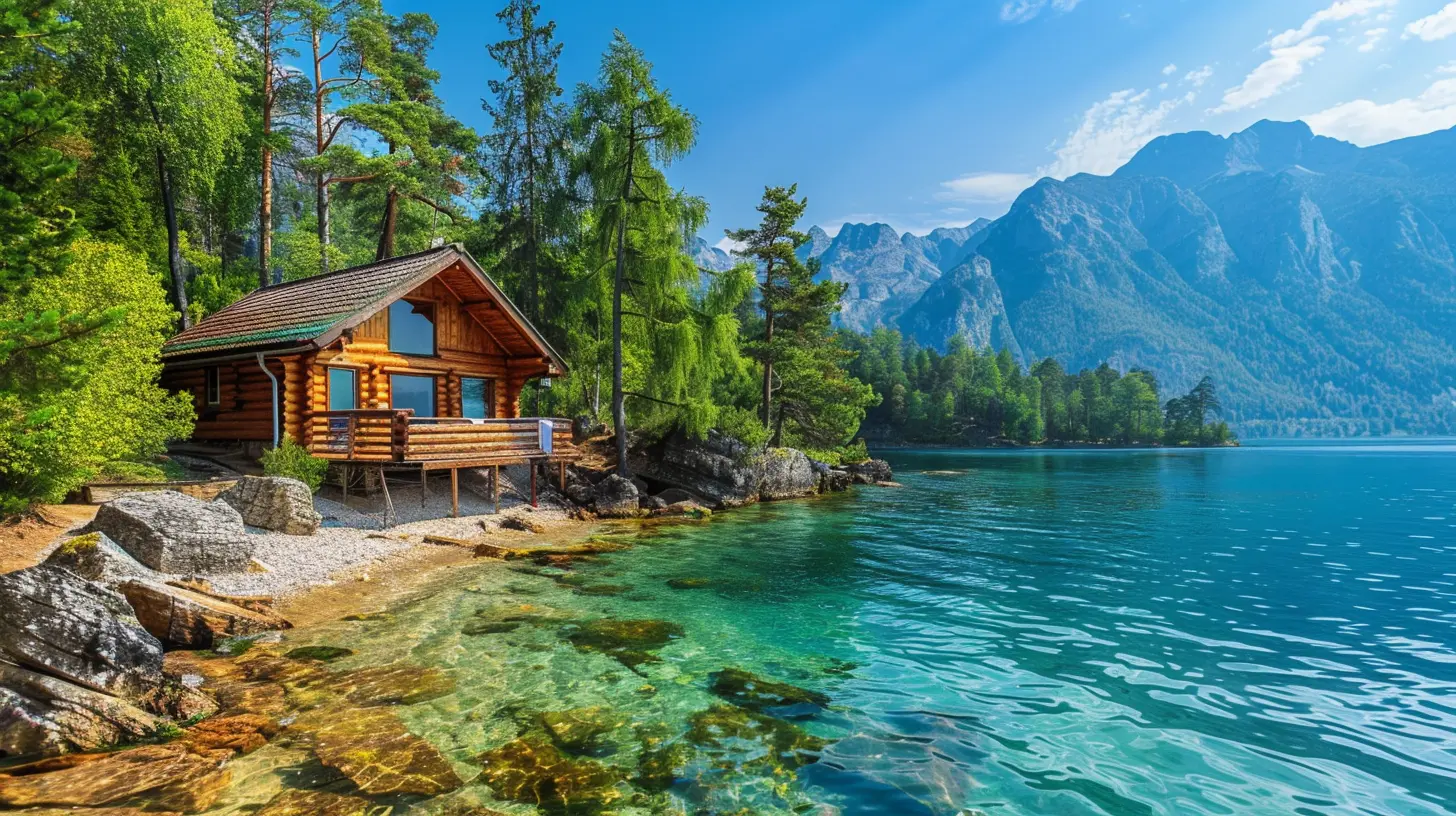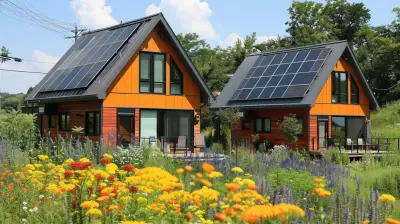How to Balance Personal Use and Rental Income in Your Vacation Home
10 October 2025
Owning a vacation home is a dream come true for many. Imagine having your own cozy retreat by the beach or a cabin in the mountains where you can escape whenever you please. But what if your little slice of paradise could also make you some extra income? Sounds perfect, right?
The tricky part, though, is finding the right balance between enjoying your vacation home for personal use and renting it out for profit. How do you keep it available for family getaways while also maximizing rental income? Let’s dive into the basics and uncover some smart strategies to make it work. 
Why Balancing Personal Use and Rental Income Matters
Some homeowners buy vacation properties purely for investment, while others want a getaway spot for themselves. But if you're looking to do both—relax and earn money—it's essential to strike the right balance.Too much personal use? You’re missing out on rental income. Too much renting? You might feel like you barely get to enjoy your own property. Finding that sweet spot ensures you get the best of both worlds while keeping the property well-maintained and financially sustainable. 
Setting Clear Goals: Personal Use vs. Profit
Before you even start listing your property for rent, ask yourself:- How often do I want to use my vacation home personally?
- How much rental income do I need to cover expenses or turn a profit?
- Am I emotionally prepared to let strangers stay in my home?
It’s crucial to define your priorities early on. If your primary goal is income, you may have to limit your visits during peak seasons. But if personal relaxation is your focus, you might be willing to sacrifice some earnings. 
Choosing the Right Rental Strategy
There are different ways to rent out your vacation home, and the strategy you choose will impact how often you can use it:1. Short-Term Rentals (Airbnb, Vrbo, etc.)
If you go this route, you have more control over when you use the property. You can block off dates for personal use and open it up for bookings during peak times.✅ Pros: Higher rental rates, flexibility to use the home whenever you want
❌ Cons: More maintenance, frequent cleaning costs, local regulations might be restrictive
2. Seasonal Rentals
Renting your home for an extended period—say, a few months at a time—can be a great option if you prefer to use your property only during specific seasons.✅ Pros: Less frequent turnover, fewer cleaning costs
❌ Cons: Less flexibility for personal use during the rental period
3. Long-Term Rentals
If income is your primary goal, renting the home to a long-term tenant might be the best move. However, this means you won’t have free access to your property whenever you want.✅ Pros: Reliable income, less management required
❌ Cons: Little to no personal use, tenant laws may make it harder to regain access 
Understanding Peak Seasons and Demand
One way to maximize rental income without giving up too much personal time is to rent your vacation home during peak seasons when demand is highest.For example:
- If your home is in a ski town, renting it out during winter can bring in significant income.
- A beachfront property will see peak demand during summer.
By strategically blocking off dates, you can enjoy your home during off-peak times while still making good money when demand surges.
Setting Rental Rates That Work for You
Pricing your rental correctly is key. Charge too much, and you might struggle to get bookings. Charge too little, and you could be leaving money on the table.Consider:
- Seasonal pricing: Adjust rates based on high and low seasons.
- Competitor analysis: Check what similar rentals in your area are charging.
- Your expenses: Ensure you’re covering mortgage payments, utilities, maintenance, and management fees.
Some homeowners set premium rates during their personal off-seasons to ensure they only rent to guests willing to pay top dollar. This minimizes wear and tear while maximizing income.
Keeping Your Vacation Home Guest-Ready
Renting out your vacation home means you need to keep it in top shape for guests. This requires a bit of planning:1. Storage for Personal Belongings
If you’re using your home frequently, it’s a good idea to have locked storage areas for personal items like clothes, sentimental belongings, and expensive gear.2. Professional Cleaning and Maintenance
Frequent rentals mean frequent cleaning. Hiring a professional cleaning service can keep your home in pristine condition while removing the hassle of constantly prepping it yourself.Consider scheduling regular maintenance on:
- Plumbing
- HVAC systems
- Kitchen appliances
- Landscaping
3. Smart Home Technology
Installing smart locks, security cameras (for exterior areas), and thermostat controls can make managing your property from afar much easier. Plus, it keeps things secure for both renters and yourself.Managing Bookings Without Losing Your Sanity
Handling bookings, guest inquiries, and maintenance can feel overwhelming—especially if you don’t live nearby. Here are some ways to ease the burden:1. Use Booking Platforms
Listing your property on Airbnb, Vrbo, or Booking.com helps automate the process. They handle bookings, payments, and even some customer service tasks for you.2. Hire a Property Manager
Not keen on managing guest stays? A local property management company can handle bookings, guest check-ins, and maintenance for a fee (typically 20–30% of your rental income).3. Set Clear House Rules
Prevent headaches by setting clear guidelines about:- Maximum occupancy
- Pets
- Noise levels
- Check-in/check-out policies
A well-drafted rental agreement can save you from potential disputes.
Understanding Taxes and Legal Considerations
Renting out your vacation home comes with financial responsibilities. Ignoring tax and legal implications could lead to unwanted surprises.1. Short-Term Rental Regulations
Some cities have restrictions on short-term rentals. Be sure to check local zoning laws and HOA rules before listing your home.2. Tax Implications
- If you rent for fewer than 14 days per year, you may not have to pay tax on the income.- If you rent out for more than 14 days, you must report the income but can also deduct expenses like mortgage interest, property management fees, and maintenance costs.
Consult a tax professional to ensure you’re handling everything correctly.
When to Reevaluate Your Strategy
What works today might not work a year from now. It's essential to periodically assess whether your vacation home is serving your goals.Ask yourself:
- Are you making as much rental income as expected?
- Do you feel like you’re still getting enough personal use out of the home?
- Are there new regulations or market changes affecting your rentals?
Adjust your approach as needed to keep your vacation home both enjoyable and profitable.
Finding the Perfect Balance
Balancing personal enjoyment and rental income in your vacation home isn’t an exact science. It’s about finding what works best for you—whether that means renting only a few weeks a year or making it a full-time investment.With the right strategy, solid planning, and a little flexibility, you can have your dream getaway and a steady stream of extra income. Who says you can’t have the best of both worlds?
all images in this post were generated using AI tools
Category:
Vacation HomesAuthor:

Travis Lozano
Discussion
rate this article
1 comments
Zyana Gill
Ah yes, the age-old dilemma: enjoy your vacation home or let strangers throw cereal on your couch for a few bucks. Tough choice—maybe just flip a coin and call it a day!
October 22, 2025 at 4:08 AM

Travis Lozano
It's definitely a tricky balance! Finding the right mix of personal enjoyment and rental income can make all the difference.


